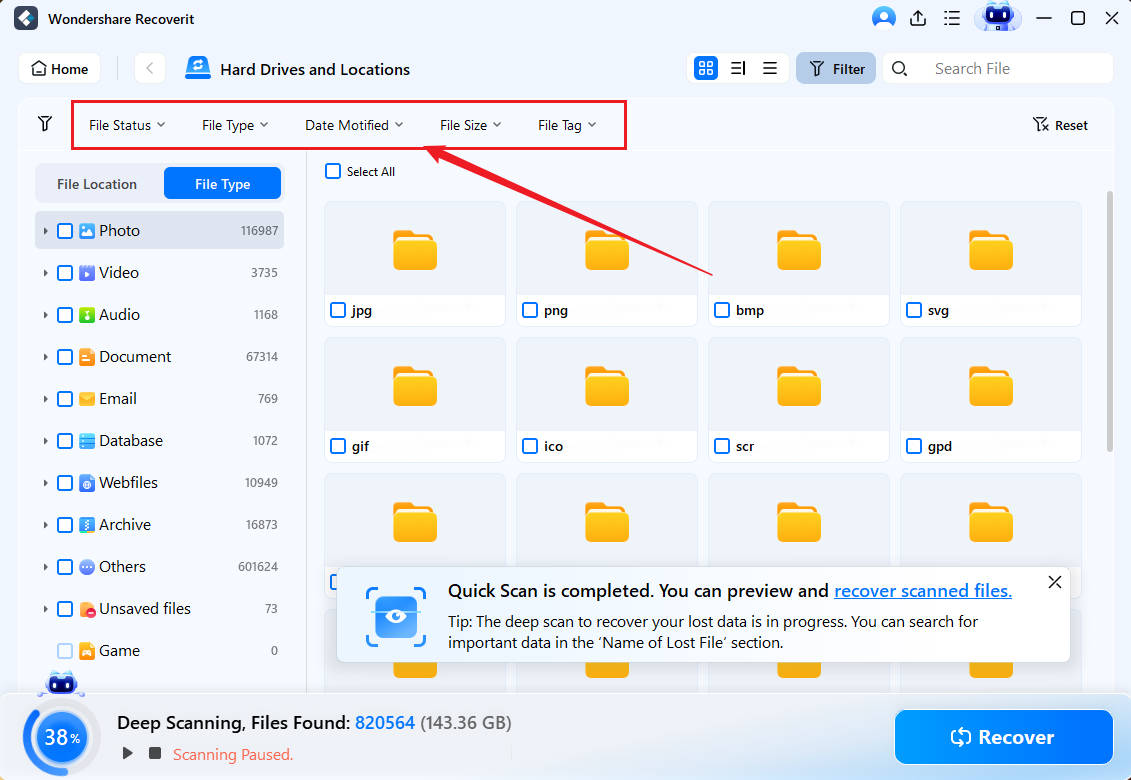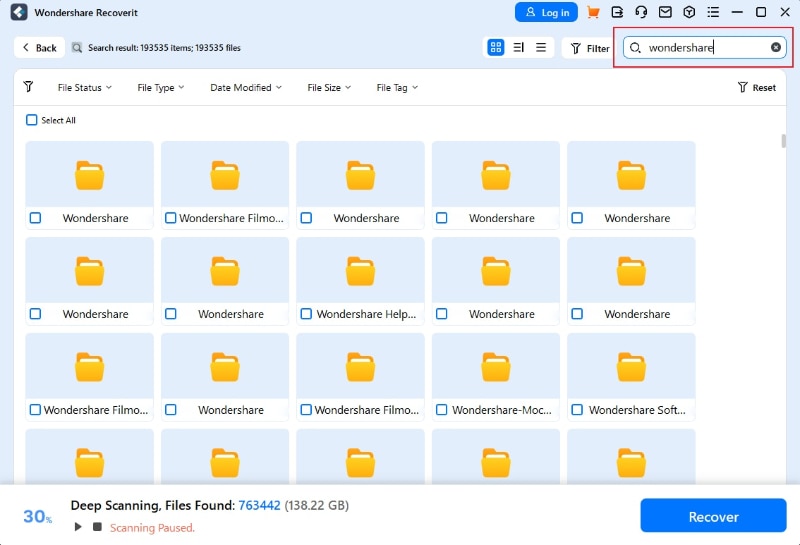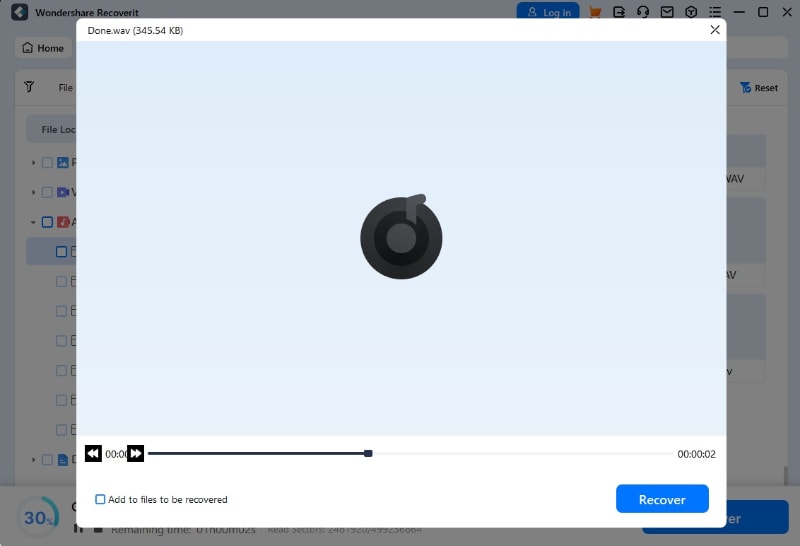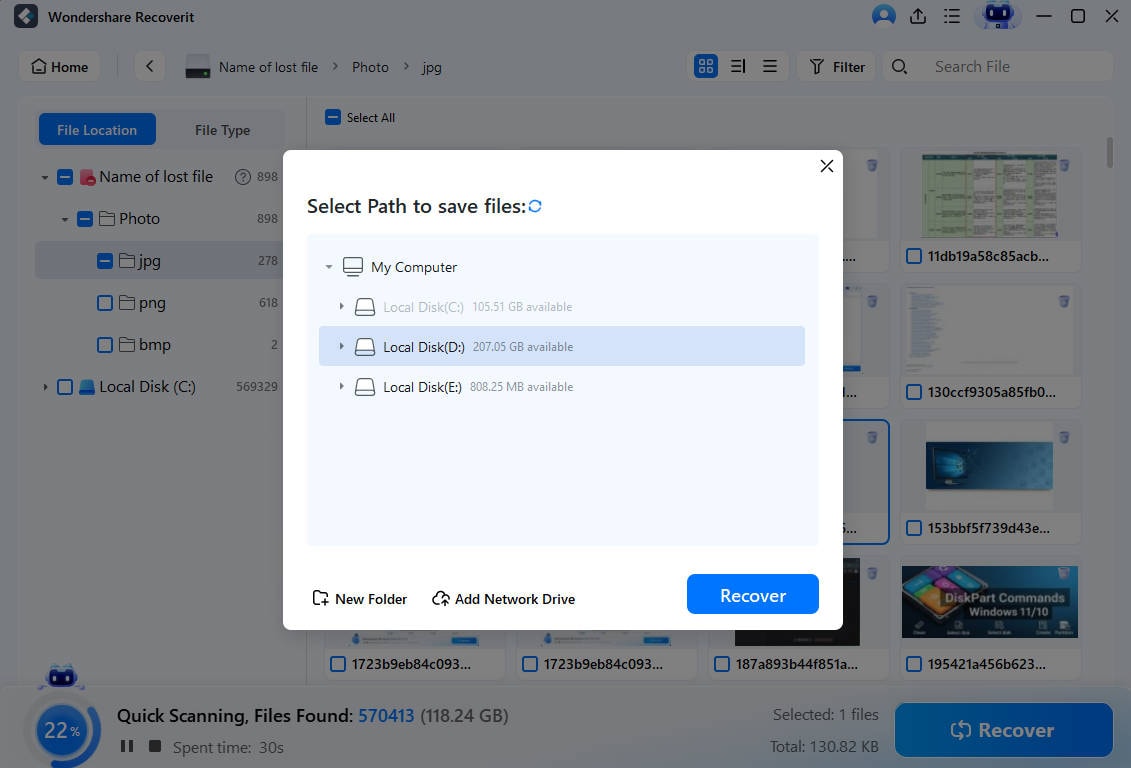If you've been in the audio industry for some time, you may have encountered AU files and wondered about the hype around them. Today, we're here to tell you everything you need to know about AU.
We'll focus on the technical specifications, characteristics, sound quality, use cases, benefits, and many more aspects to help you determine whether to use AU files. Read on to discover tips for repairing and recovering such files if things go sideways.
In this article
About the AU File Format
The AU file format is a simple audio format for storing files in smaller capacities. It originally consisted of 8-bit encoded data, but the newer version supports 32-bit instances and encoding features.
Technical Specifications of the AU File Format
To learn more about the AU file format, read ahead. We'll present some of its essential technical specifications below.
Structure and Encoding
AU file format has a simple structure that includes the following components:
- Headers – AU files contain metadata and crucial information defining the audio files, bits, and encoding methods.
- Audio data – Besides additional information, AU files contain the audio data.
- File extension – AU files have .au (for older versions) and .snd (for newer versions) extensions.
The AU file format is flexible regarding encoding, and you can use some of the following instances on your audio journey:
| Encoding Example-1 | Encoding Example-2 |
| 8-bit G.711 μ-law | 8-bit linear PCM |
| 16-bit linear PCM | 24-bit linear PCM |
| 32-bit linear PCM | 32-bit IEEE floating point |
| 64-bit IEEE floating point | Fragmented sample data |
| Nested (unclear format) | DSP program |
| 8-bit fixed point | 16-bit fixed point |
| 24-bit fixed point | 32-bit fixed point |
| μ-law Squelch format | 16-bit linear with emphasis |
| 16-bit linear compressed | 16-bit linear with emphasis and compression |
| Music kit DSP commands | Music kit DSP commands samples |
| ITU-T G.721 4-bit ADPCM | ITU-T G.722 SB-ADPCM |
| ITU-T G.723 3-bit ADPCM | ITU-T G.723 5-bit ADPCM |
Compatibility Considerations
AU file formats are compatible with numerous operating systems, including Android, Windows, macOS, and Linux. However, they're incompatible with all player platforms, so check whether your preferred player supports this file type. Otherwise, find one with AU support, but we'll touch upon that topic shortly.
AU Format Sound Quality
You cannot expect excellent sound quality from the AU format due to its small size and simple units. Since the file uses 8-bit to 32-bit systems, it'll significantly impact the sound's quality and output.
Another factor that impacts the sound quality is compression. You may compromise audio quality during compression. The process can distort some bits, causing them to lose their original quality.

Primary Applications of AU Files
Audio professionals don't usually use AU files. Instead, due to the AU files' convenience and size, software companies and other industries often opt for this format. Check out some of the most common use cases of AU files:
- 💻System sounds – Remember the legendary Windows XP startup sound? Well, operating systems developers often use the AU file format for these sounds to take as little space as possible while delivering a unique experience.
- 📥Short audio recordings – You can store your voice recordings and other smaller files using the AU system to save space on your device.
- 📢Sound effects – Many games and movies use short sound effects from the AU file format and add them to the content to make it more entertaining and engaging.
- 📚Educational purposes – Some professionals research audio effects from the AU file format. It's convenient because its size enables them to store hundreds of files in a single location.
Benefits of Using the AU File Format
Using the AU file format can lead to numerous benefits. Below are some of them to help you determine whether it's the best format for your needs.

Flexibility and Versatility
This format is highly flexible and compatible with multiple platforms and operating systems. Therefore, regardless of your device, you can store your audio files and make them accessible on other devices. It also supports numerous encoding systems, helping you take your audio experience to the next level.
File Structure Simplicity
The AU file format consists of only three components (the fourth one is optional), making it easy to understand. If you're a sound industry beginner or don't want to experience the hassle of other audio formats, AU files might be your ideal choice. They're simple and easy to use, making them suitable for all audio preferences and requirements.
Supports Different Codecs
The AU file format supports numerous codecs, making it versatile and universal. It supports A-law, Linear PCM, ADPCM, and many other codec variables. If you're searching for a format you can quickly move around and customize, this one might be the best option.
Limitations of Using the AU File Format
Although AU files have some incredible advantages and benefits, the downsides may change your mind about the format. Check some limitations below.
Support for Simple Compression Options Only
If you're searching for a file format to support complex compression processes, the AU format is not it. Although it can compress files, it doesn't provide nearly the same results as other formats, such as AAC.
No Support for Advanced Metadata
The AU file format can't handle much metadata, so most professionals don't use it. Instead, you can only store basic information about the audio file, which isn't sufficient for more complex audio tasks and professions.
Not a Widely-Used File Format
Since only some people use the AU file format, sharing and opening audio files with this extension may be challenging and overwhelming. You may be unable to show your friends your latest creations if you save them as AU files.

How to Open AU Files
Since the AU format isn't that popular, newer player platforms won't support it, meaning you can rely on only a few platforms to open AU files. Here are the best options to play AU files:
- VLC Media Player – VLC is the most universal player for all devices and operating systems.

- Adobe Audition – We recommend Adobe Audition if you're just starting your professional audio journey.
- QuickTime Player – Although Apple discontinued this player several years ago, it still exists, and many Mac users swear by it as it allows encoding, streaming, and transcoding on Mac devices.
- Winamp – Contrary to popular belief, Winamp isn't dead. It's another universal player for Windows, Mac, and Android devices. You can play almost any video file with it.
- Windows Media Player – Windows' built-in media player supports the AU file format and can play AU files without issues or compromising quality.
- Unix – Unix is the best player for opening AU files on Linux devices. It's also universal and supports all audio file types.
- RealPlayer – This cross-platform media player is available for all operating systems and devices. You can even use its plugins to access advanced features like saving YouTube videos.
You'll have no issues opening your AU files if you download any of these platforms.
Bonus 1: How to Recover Deleted AU Files
Protecting your valuable audio files is critical; you never know when something unexpected might happen. Your device might get a virus, or your data may become corrupted, leading to AU file loss and even more stress. To resolve such problems and get your data back within minutes, we recommend using reliable third-party software solutions like Wondershare Recoverit.
Wondershare has over 20 years of experience and over 35 patented technologies, ensuring the smoothest data recovery. Recoverit's scanners are among the best in the industry and can retrieve data in almost all data loss scenarios.
The best part about Wondershare Recoverit is that it supports all file formats, so you don't have to worry about its versatility. You can keep it in your toolbox to quickly resolve data loss issues if they arise.
To use this tool, download the program, and follow the steps below for a successful AU data recovery:
- Open Wondershare Recoverit and head to Hard Drives and Locations.
- Select a storage with deleted AU files.

- Once you pick a location, the program will automatically scan it. Let it complete the process, or pause and resume it later.

- Filter your results by file type and size.

- Use the search box to look for specific files by name.

- After scanning, preview the recovered AU files and select the items to save. Click Recover.

- Choose where to save the files.

The process of retrieving your audio files will take only a few minutes.
Bonus 2: How to Solve Ohter Issues with AU Files
Like other audio file formats, AU files can encounter issues. Thus, you might want to prepare for such scenarios before using them. Here are several troubleshooting methods to remember if things go downhill:
- Check codec compatibility – Ensure your codec is compatible with the AU file format to avoid potential issues, errors, failure, or corruption.
- Update audio drivers – Outdated audio drivers may cause playback issues, so check them for updates frequently.
- Update your operating system – Regularly updating your OS is crucial for the overall health of your device, including keeping your audio files safe.
- Conversion – Converting AU files to other formats can help you identify potential issues and act accordingly. Wondershare UniConverter is one of the best tools to help you on that quest.
Conclusion
You may have encountered AU files and wondered about their purpose and how they could contribute to your experience.
This guide has addressed these questions, technical specifications, and other aspects of AU files to help you determine whether the AU format is the right choice. Follow our bonus tips to protect your data from unexpected scenarios or recover it in data loss emergencies.















